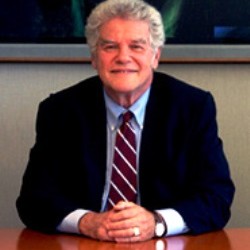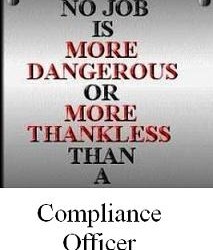
Ex-Bear Stearns Partner Pledges To Make FINRA Great Again
FINRA, aka Financial Industry Regulatory Authority, the SRO that serves as overseer of the securities brokerage industry and broker-dealers at large has completed the election campaign and voting process for electing individuals to its Board and the election winners include a former Bear Stearns partner as well as a current senior exec of hedge fund complex Bridgewater Associates.
Per WSJ-The chief executive officer of a San Francisco investment bank prevailed in a hard-fought election to join the board of Finra, the front-line regulator of stockbrokers, knocking off an incumbent and a well-known challenger who campaigned on the message that rigid oversight is choking small firms.
Bob Muh, the CEO of Sutter Securities Inc. and a former Bear Stearns partner, narrowly defeated three other candidates to win a seat on the board of the Financial Industry Regulatory Authority. He beat the second-place candidate, Stephen Kohn of Lakewood, Colo., by just three votes, according to people familiar with the matter. Robert Keenan, a sitting board member who also upset an incumbent when he won his last election in 2013, placed third. Mark Howells, a broker based in Scottsdale, Ariz., also competed in the race.
Finra, one of the country’s most powerful financial regulators, allows the industry it oversees to elect some of its officers. While Finra isn’t a government agency and ultimately answers to the Securities and Exchange Commission, Congress has sanctioned its role as a standard-setter and rule-enforcer for the brokerage industry.
Finra’s bylaws require that a majority of its 24-member governing board have no industry ties. But Finra reserves three board seats to represent its 3,550 small-firm members. That board structure has fostered the unusual dynamic of candidates campaigning for office at the overseer by vowing to lighten its oversight.
Turnout in the election was about 43%, meaning about 1,500 of Finra’s small-firm members voted, people familiar with the matter said. (For the full WSJ article, click here)
A more colorful take on the above is courtesy of DealBreaker’s Jon Shazar:
t may surprise you (but probably shouldn’t) to learn that there are some people who think FINRA’s doing too good and too thorough a job regulating broker-dealers. That it’s really nobody’s business if a broker levies an unspoken lap dance fee. That its website is actually too up-to-date and too easy for clients to use to find out about the levying of unspoken lap dance fees. That the problem isn’t FINRA’s habit of whitewashing what broker records are available, but that there are just too many disciplinary actions being taken that require whitewashing. These people are called FINRA members, specifically its 3,550 small-firm members. And because self-regulation is a hilarious carnival of ineptitude and bad optics, these small firms get to elect a representative to FINRA’s board, to represent their interest in going unregulated to the greatest extent possible.
These triennial contests have all the hallmarks of a real political campaign: websites, mudslinging, throw-the-bums-out mentalities. Unsurprisingly, they also look an awful lot like a local Tea Party meeting, with candidate trying to one-up the other in making deregulatory promises they’ll never be able to keep in the face of the 23 other FINRA board members who don’t think it’s a great idea to provocatively antagonize customers, the press and the Securities and Exchange Commission at every turn.
This year, the bum getting thrown out was Robert Keenan, elected three years ago on the platform that the previous bum wasn’t doing enough to get these regulatory pencil pushers off their goddamned backs, and who was felled by the same sword. But the winner—who will get to serve alongside fellow new FINRA director and Bridgewater exec Eileen Murray—wasn’t the most fire-breathing of the candidate. Instead, by a margin of all of three votes out of 1,500 cast, the small folks of FINRA picked a 78-year-old former Bear Stearns, Bob Muh, partner to carry the doomed torch.
Mr. Muh, 78 years old, was seen as a moderate and experienced voice in a campaign in which Mr. Kohn accused Mr. Keenan of playing fast and loose with campaign rules and not pushing back hard enough against regulations that brokers oppose….
“I certainly can’t call it a landslide or a mandate, but I’m delighted I’ll have the chance to convince the independent directors on the board of some the changes that are need for the small firms,” Mr. Muh said in an interview Monday after Finra announced the results.




